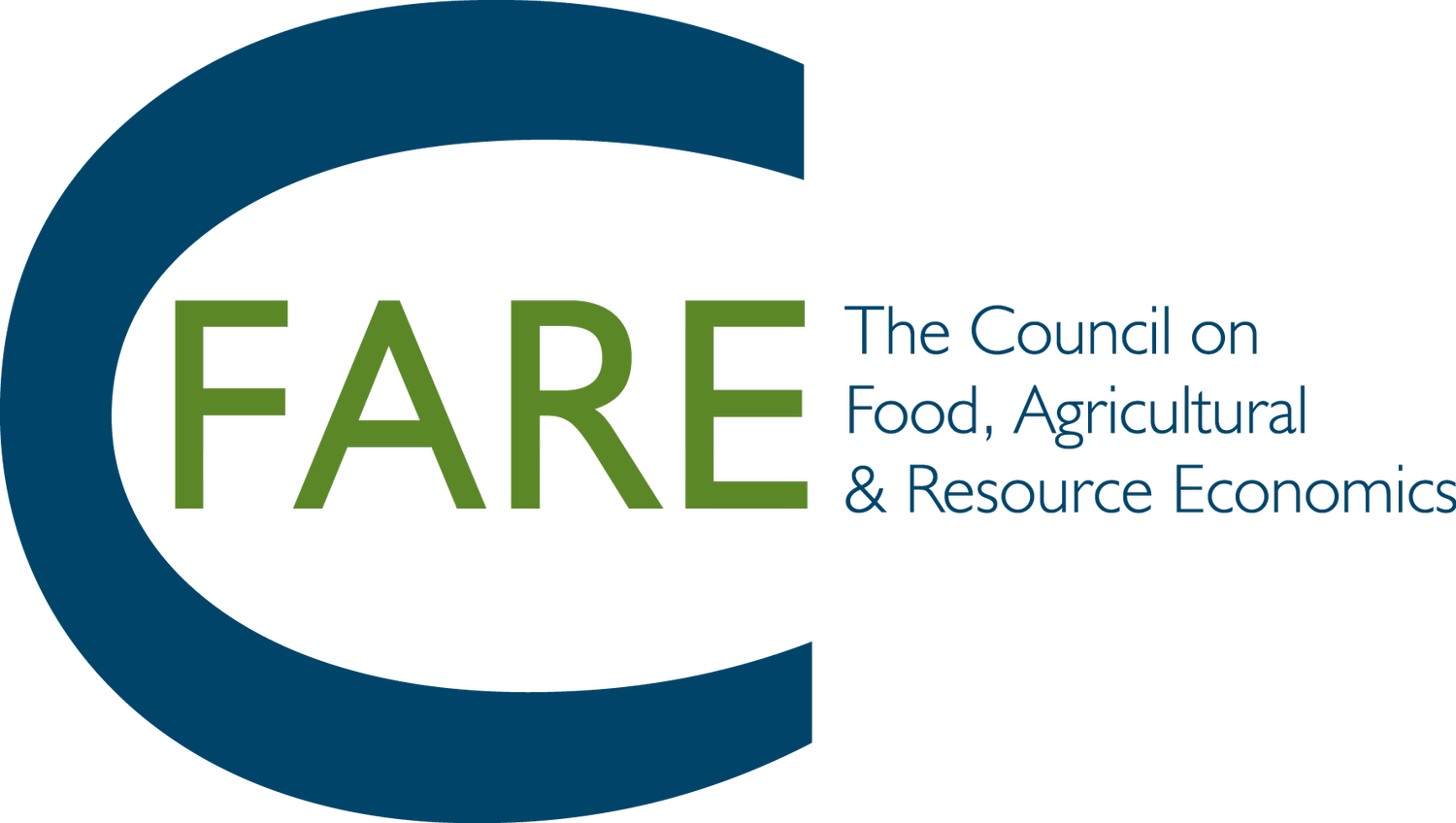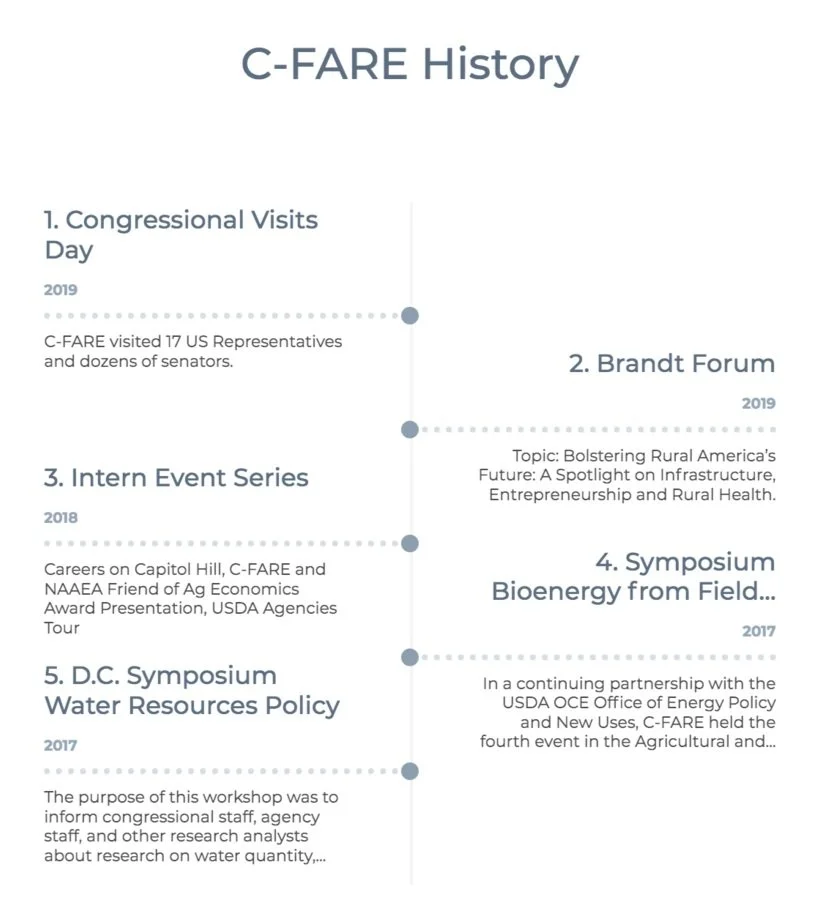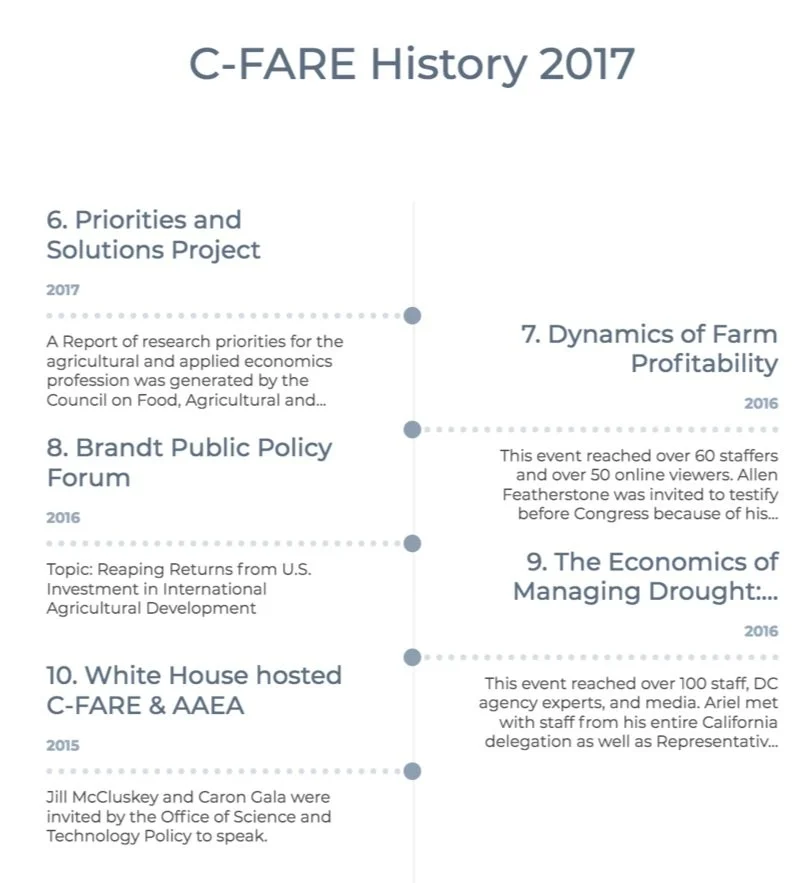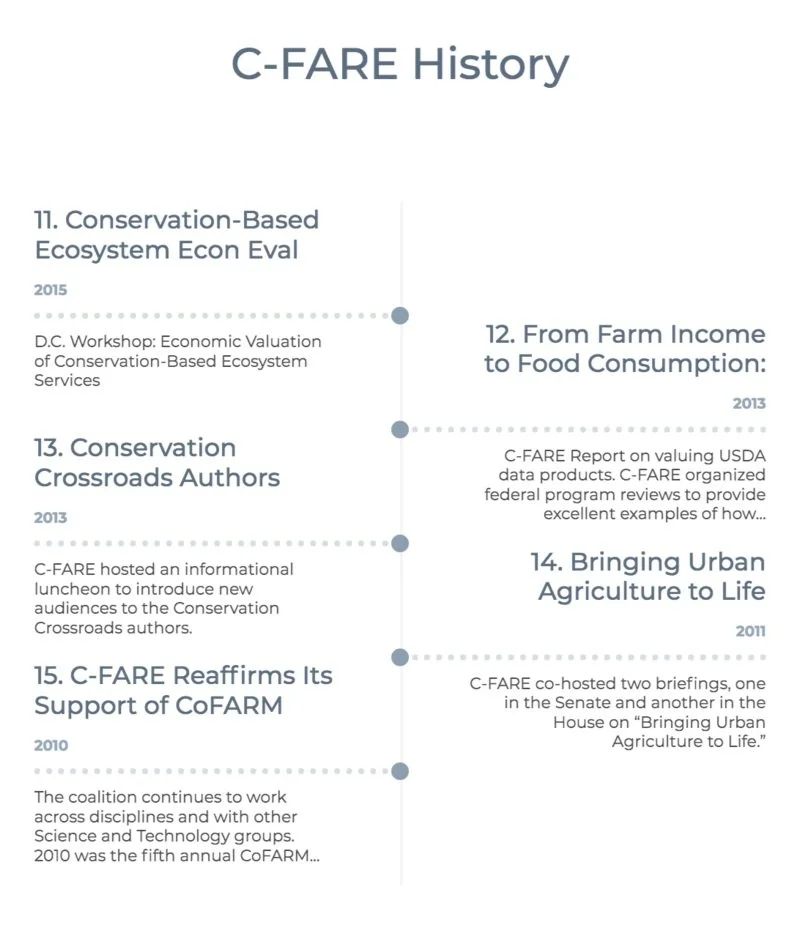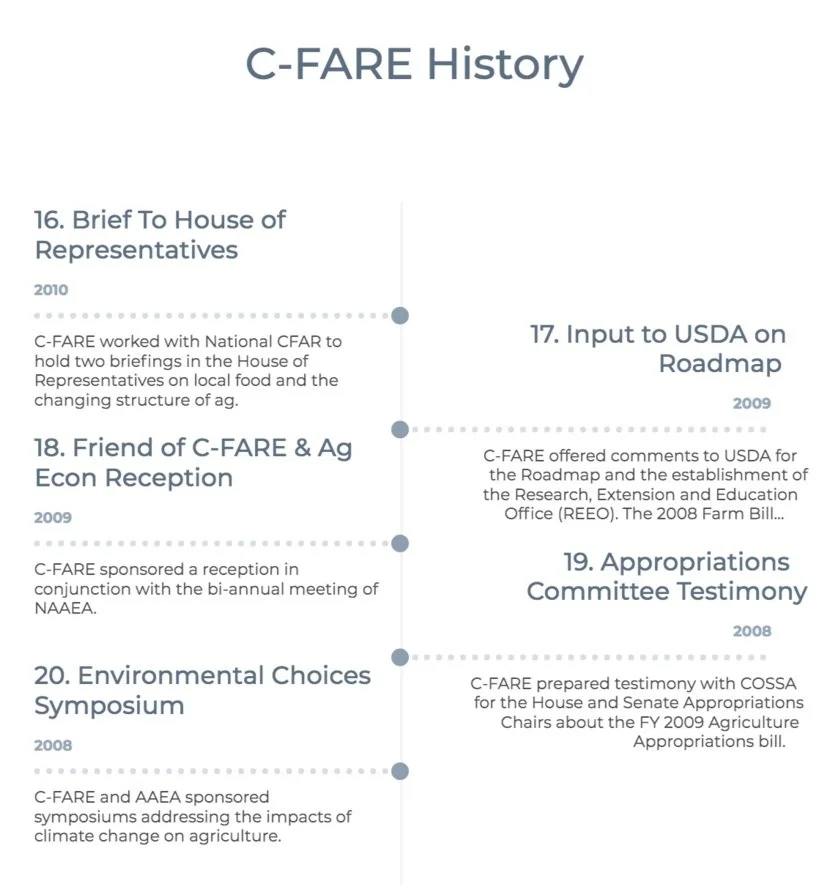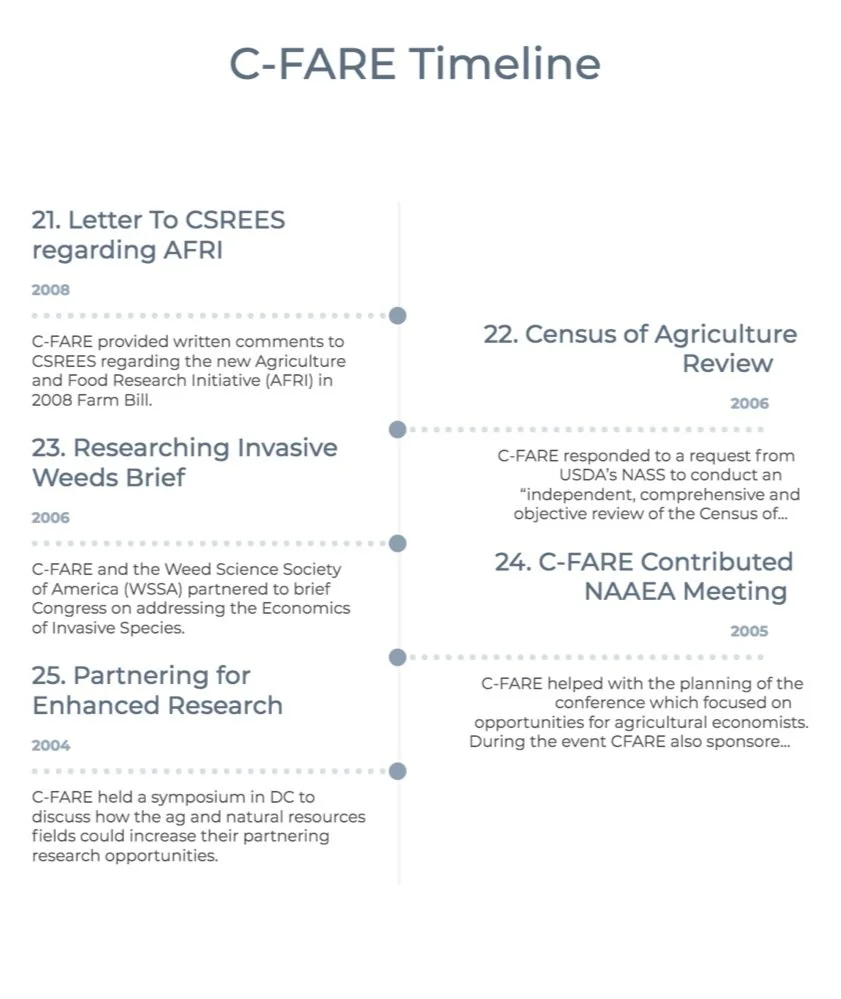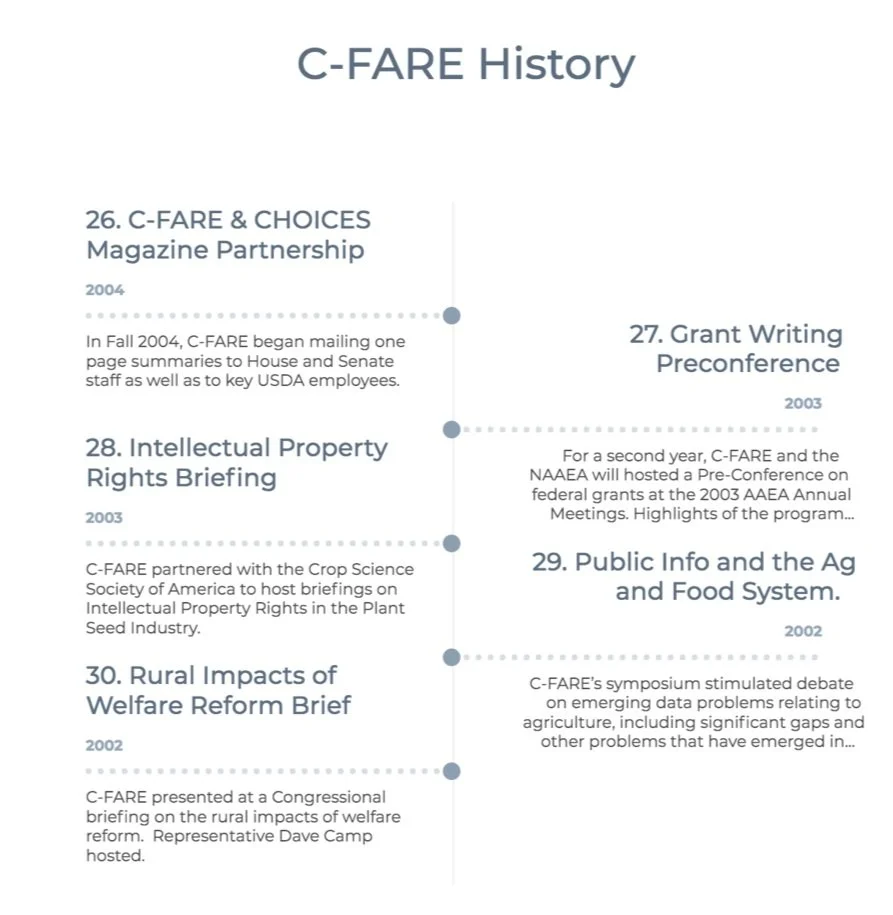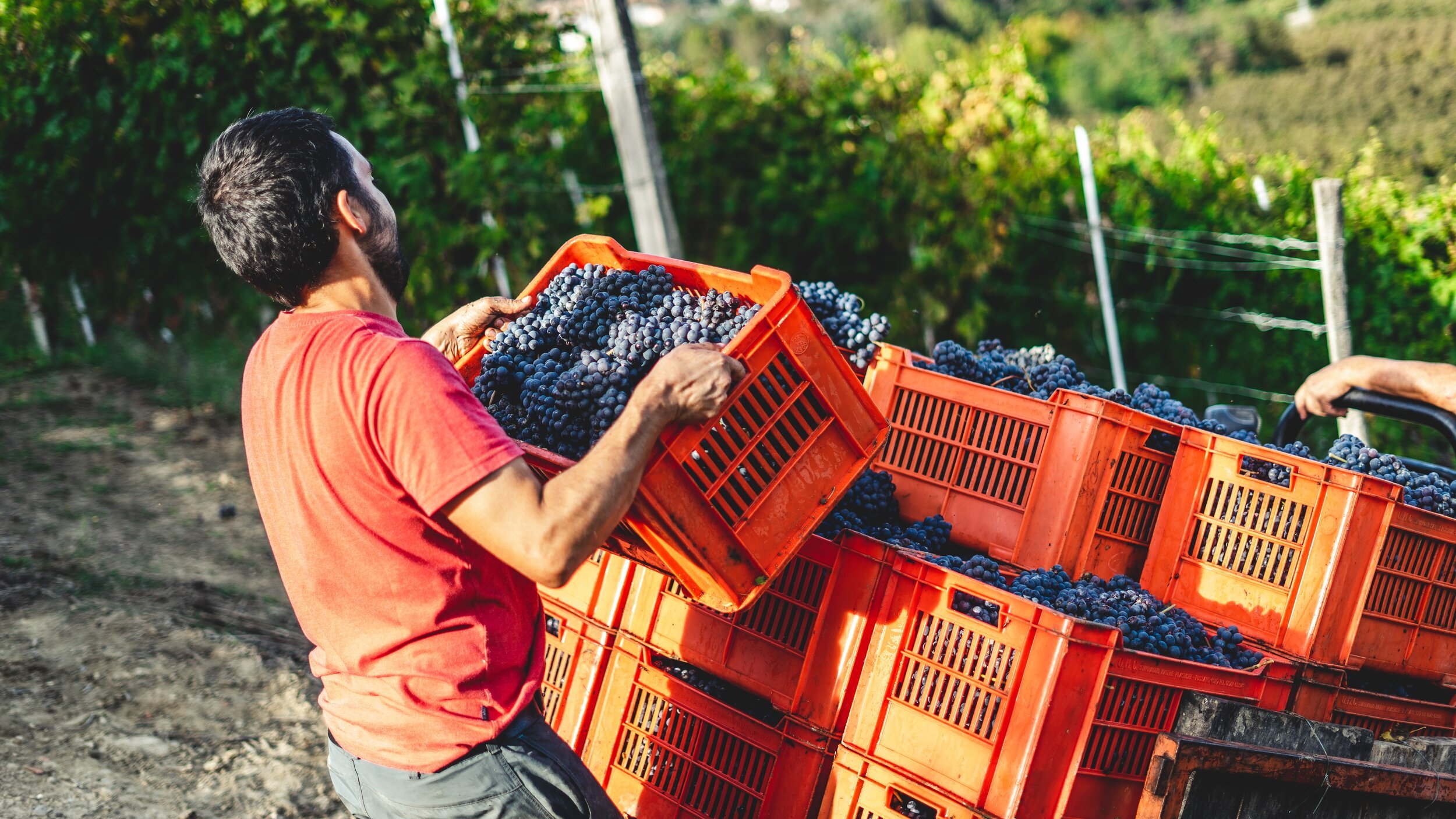
History
C-FARE HISTORY INTRODUCTION:
C-FARE has been around since 1994, and our history of working with policy makers in the field of agriculture and applied economics is lengthly. To make this information easily digestible we created timelines. These timelines have short summaries of all the events in our organization’s past. For more information on a particular event please click on the timeline and use the number next to the event to find more information on the supporting page.
C-FARE HISTORY HIGHLIGHT
(2017-2019)
Capitol Hill Symposium Water Resources and Policy: Exploring the Risks, Benefits, and Opportunities for Conservation March 20, 2017
C-FARE, in conjunction with AAEA, hosted a seminar at the Capitol Visitors Center and at the U.S. Department of Agriculture - Economic Research Service. The purpose of this workshop was to inform congressional staff, agency staff, and other research analysts about research on water quantity, water quality, and related policy being conducted by agricultural economists and to engage in an interactive dialogue on research needs and priorities for future research useful for policy development.
C-FARE HISTORY HIGHLIGHT
(2015-2017)
Priorities and Solutions Project:
A Report of research priorities for the agricultural and applied economics profession was generated by the Council on Food, Agricultural and Resource Economics (C-FARE) and the Agricultural and Applied Economics Association (AAEA) as part of the joint Agricultural and Applied Economics Priorities and Solutions Project. The event highlighted the role of economics in addressing industry challenges trade, markets, big data and consumer preferences.
Goals of Priorities and Solutions Project:
Cultivating economic development and trade policy for economic stability, growth, and equality.
Understanding consumer preferences to enhance well-being.
Ensuring growth and opportunities in the farm economy.
Preparing the agricultural sector for a dynamic climate.
Achieving nationwide food security to enhance rural and urban economic vitality.
Enhancing natural resource and agricultural sustainability.
Big data for advances in agricultural production, food supply, and meeting consumer demands.
Advancing rural economic growth for a robust America.
Building an American energy economy.
Developing the solution supply chain by integrating innovation into the marketplace.
C-FARE HISTORY HIGHLIGHT
(2010-2015)
“From Farm Income to Food Consumption: Valuing USDA Data Products”
In 2013, C-FARE continued our practice of organizing federal program reviews to provide excellent examples of how economists contribute to federal topics and programs. On May 16, 2013, C-FARE held a seminar as a part of a project to elucidate the value of data collected by the U.S. Department of Agriculture (USDA). Specific objectives of the project were to:
1. Summarize the major USDA data collection efforts;
2. Provide a conceptual framework for determining the value of information;
3. Summarize the academic research on the effects and value of USDA data products;
4. Provide, where possible, case-study accounts of effects of prior discontinuations of USDA data products;
5. Make recommendations on opportunities to increase the value of USDA data collection efforts;
6. Outline an approach that measures the net benefits of alternative USDA data products.
C-FARE HISTORY HIGHLIGHTS
(2008-2010)
“Environmental Choices: Outlook and Investigation on Climate Change as It Relates to Agriculture and Natural Resources”
On April 1 and May 20, C-FARE and AAEA sponsored symposiums addressing the impacts of climate change on agriculture. The seminar explored current and projected climate change; implications of projected climate change for agriculture, forests and water; implications of emissions prospects for climate change and agricultural/forestry adaptation needs; implications of emissions mitigation possibilities with additional feature on sequestration, deforestation and biofuels; and alternative policy approaches. The speakers contributed to the Intergovernmental Panel on Climate Change (IPCC) report.
C-FARE HISTORY HIGHLIGHTS
(2004-2008)
“Researching Invasive Weeds”
C-FARE and the Weed Science Society of America (WSSA) partnered to hold both a stakeholder briefing and a Congressional briefing on May 5, 2006 addressing the Economics of Invasive Species. Two scientists spoke on the outcome of their federally funded research provided by the USDA ERS PREISM program. C-FARE was represented by Dr. Munisamy (Gopi) Gopinath at Oregon State University and WSSA was represented by Dr. Bruce Maxwell from Montana State University. Thirty-five individuals representing federal agencies, grower groups, and the academic sector attended the stakeholder briefing. Approximately a dozen staff from both the House and Senate attended the Congressional briefing.
C-FARE HISTORY HIGHLIGHTS
(2002-2004)
Congressional Briefing on Rural Impacts of the Welfare Reform Bill
On April 15, 2002 C-FARE sponsored a Congressional briefing addressing “Rural Impacts of Welfare Reform.” Representative Dave Camp (MI), who serves on the Ways and Means Committee, hosted the briefing. The opportunity to expand our involvement with Committees outside of the traditional focus is promising. Several Congressional Staffers attended the briefing. Speakers included: Dr. Leslie Whitener (ERS), Dr. Bruce Weber (Oregon State), and Dr. Mark Henry (Clemson University).
C-FARE HISTORY HIGHLIGHTS
(1998-2001)
2002 Farm Bill Symposium Series
C-FARE hosted two symposiums in Washington, DC addressing the questions surrounding the 2002 Farm Bill. Both events were well attended, with participants including Congressional Staff, USDA employees, members of agricultural interest groups, and several Embassy staff. Summary documents have been written from both events and are available on C-FARE’s web site at www.cfare.org under the section for “Publications.” Topics that are highlighted include, typology, land values, risk management, structural change, and Policy implications at the May 14, 2001 Symposium. The November 5, 2001 event looked at consumer views, a predicted 20 year agriculture consumption report, market information, strategic forces, environmental issues, WTO, and a Policy summary
C-FARE HISTORY HIGHLIGHTS
(1994-1997)
Agricultural Research Assessment Symposium
C-FARE cosponsored the Symposium on Agricultural Research Assessment held August 29, 1995. Funding for the symposium was received from the Office of the Under Secretary for Research, Education, and Economics, USDA. The focus of the symposium was on understanding the key issues in conducting and using research assessments to enhance the overall contributions of the agricultural research system. Speakers included researchers, high-level Policy makers, and industry representatives. A document summarizing the main points made by each speaker and in the discussion sessions is available from C-FARE's Washington, DC office and has been distributed to all agricultural economics department heads.
